Eliza Gilbert did what she wanted, when she wanted. Her appetites were countless and consuming: men, fame, power, freedom. Those who tried to tame her were met with guile, and – on occasion – a dagger drawn fresh from her garter. By the age of 24, she’d eloped to India, separated from her husband, established a career as a ‘Spanish’ dancer (despite being, well, Irish) and been expelled from four cities. In Berlin, for one, she performed for Tsar Nicholas I of Russia and was arrested shortly after for assaulting an officer with a horse whip.
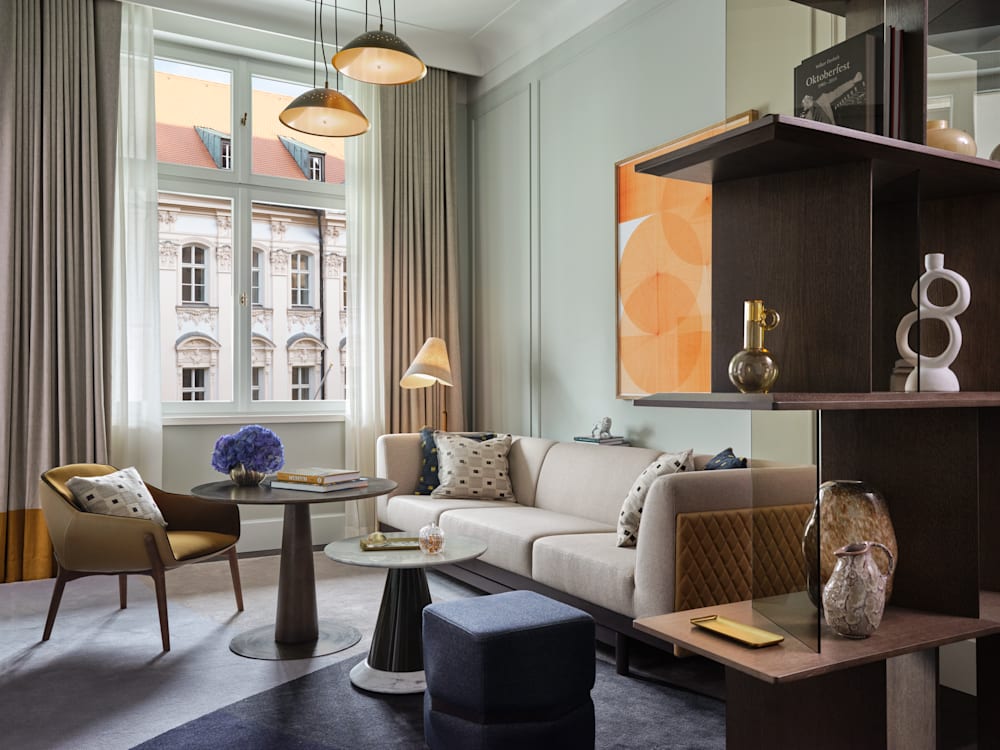
But despite being among the most notorious women of the 19th century, Eliza Gilbert was a nobody. Lola Montez, however – the stage name which Eliza adopted – was not. Especially in Munich, where she caught the eye of King Ludwig I of Bavaria, who, despite being a cringeworthy poet and by all accounts less than perfect looking, became Lola’s most lucrative conquest yet. As I sip on a ‘royal affair’ in Rosewood Munich’s buzzy Bar Montez – a fitting tribute to the city’s enfant terrible, with its dim lights, rich velvets and animated atmosphere – her provocative, pleasure-chasing spirit is palpable.
‘She has had a more complete fiasco than it is possible to imagine,’ one Belgian critic reported, following a calamitous evening in Ghent where her signature ‘spider’ dance was met with hissing from the crowd. Though what she lacked in ability, she made up for in charm. With thick black curls and deep blue eyes, Lola left a trail of broken hearts in her wake as she romped her way around the globe. She seduced composer Franz Liszt in Dresden, novelist Alexandre Dumas in Paris and became the talk of the town when the latest in her long string of lovers, the newspaper editor Alexandre Dujarier, died in a duel which she may have initiated.

Much like Lola, Munich is a city that’s had its fair share of episodes. And Rosewood’s Deutschland debut – an impressive architectural feat spread across two landmark buildings in the city’s Altstadt – is a testament to its mercurial character. In the entrance, marble teller booths from the building’s past as the State of Bavaria Bank mark the dawn of the the region’s rapid industrialisation, while a deeper look at its Rococo façade reveal Munich’s agricultural roots, with a plough, spindle and beehive expertly carved from Bavarian limestone.
Today, Munich is a prosperous city; a polished, old-world antidote to Berlin’s gruff sprawl. You’ll hear Germans refer to it as ‘Millionendorf’ – the village of a million people – for its cosy, toy-town feel. Though you may also hear them bemoan its perceived haughtiness and high self-regard, or grumble about the city’s conservative bent, milkmaids and all. As my two-day trip turns into a week thanks to the most significant snowfall the city’s seen in two decades (and a string of cancelled flights…), I discover that Munich is in fact both of these things, and much more besides.
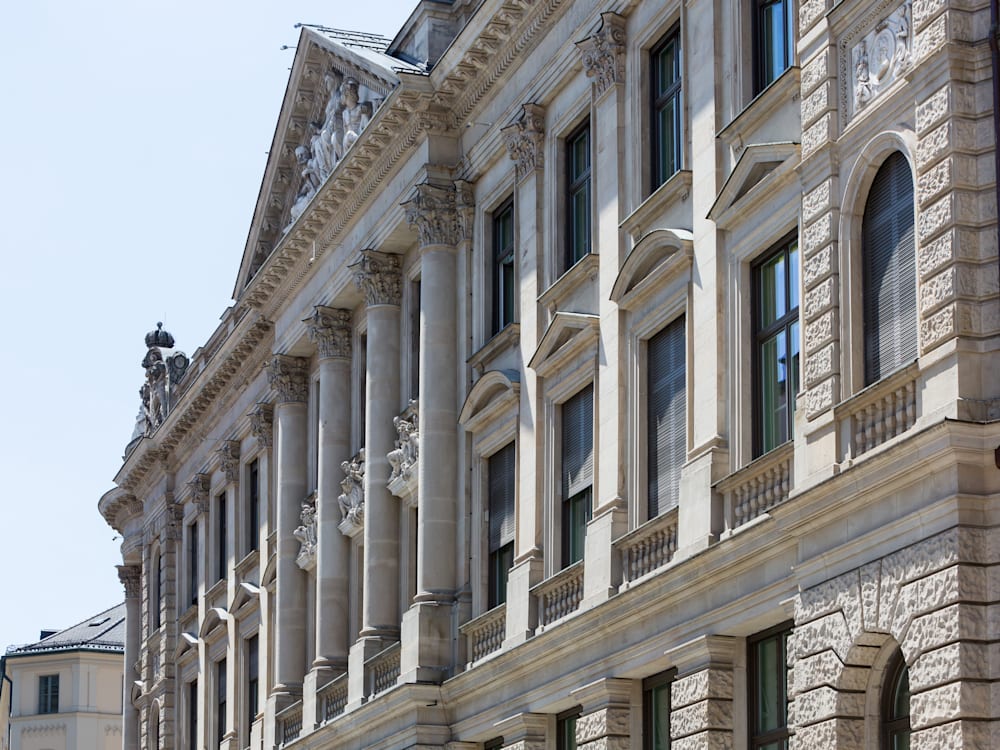
‘Laptops and lederhosen’ is one way the Munich paradox has been described. Coined by a former head of state, the phrase neatly captures the city’s gemini-like duality; traditional but dynamic, quaint but international, and a little lofty, sure, but never one to turn down a knees-up. In fact, ‘conservative’ Munich can be quite the hedonist, and while Lola may have been among the first of the city’s wild ones, she certainly wasn’t the last.
Curated by Double Decker studio, the hotel’s artwork tells the stories of those who have contributed to Munich’s rich culture. In rooms – each fit for a könig with outrageously comfortable beds – Olaf Hajek’s ‘Bavarian pop’ portraits depict historical figures as Warhol-esque stars. Before Edie Sedgewick came Empress Sisi – a Bavarian princess turned poet and fashion icon; and before the King of Rock ’n’ Roll came mad King Ludwig II, whose preference for climbing through the window of his castle instead of using the door was one in a long list of his eccentricities.
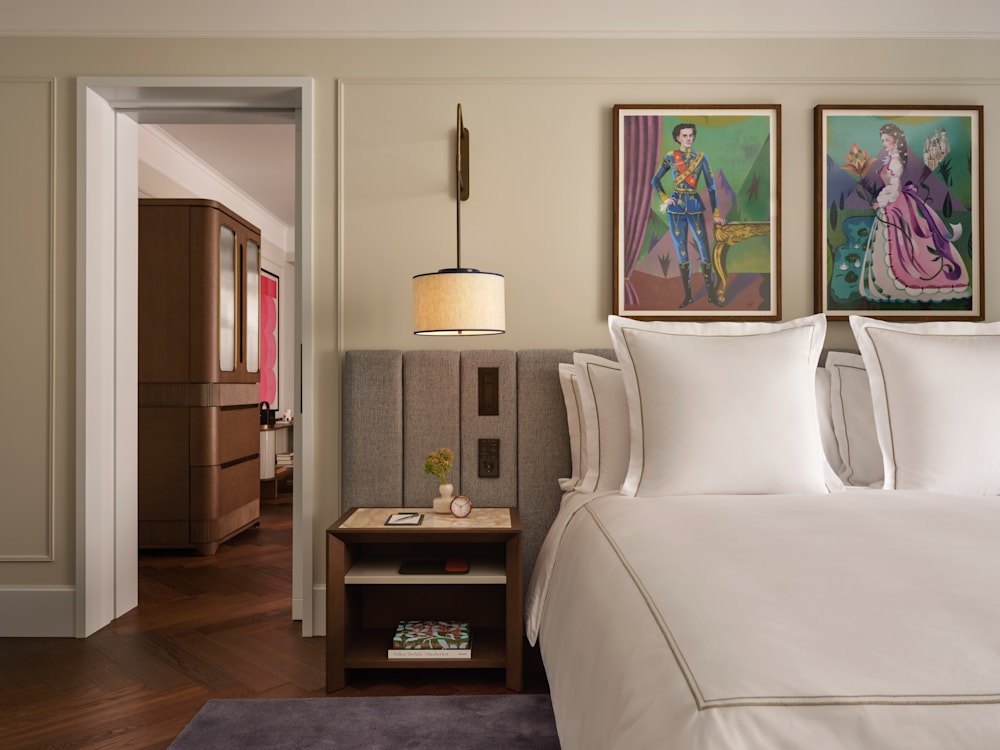
In more recent history, the city became a hub for creative minds, particularly in Schwabing, the leafy neighbourhood just north of Rosewood Munich where Paul Klee threw wild art parties, Kandinsky developed his signature abstract style and Rainer Maria Rilke began his quest to expand the possibilities of poetry. I purposely take the long way back to my room, stopping on each floor to admire Munich’s more contemporary muses enshrined by Zé Otavio’s expressive portraits. There’s Alfred Hitchcock, who was based in Munich early on in his career; Donna Summer, who joined the German adaptation of Hair the musical in 1968 and remained in the city for several years; and Freddy Mercury, a regular in the city’s decadent gay clubs who established a close relationship with his Munich landlord Winnie Kirchberger.
And it’s not just the art which tells the story of the city and its eccentric cast of characters. In true Rosewood style, this ‘sense of place’ is woven into every aspect of the hotel. Take the ballroom, where gilding has been restored with a dried crust of black bread (an ancient Bavarian technique); or the all-day-dining restaurant, Brasserie Curveillés, named after the Flemish architect who changed the visual landscape of the city when he introduced the new Rococo style to Bavaria. London-based designer Tara Bernerd, meanwhile, has reimagined the noble bones of the building’s former aristocratic palace using chequered marble floors that mimic the original parquet, and through theatrical domed ceilings which draw inspiration from Munich’s many churches.
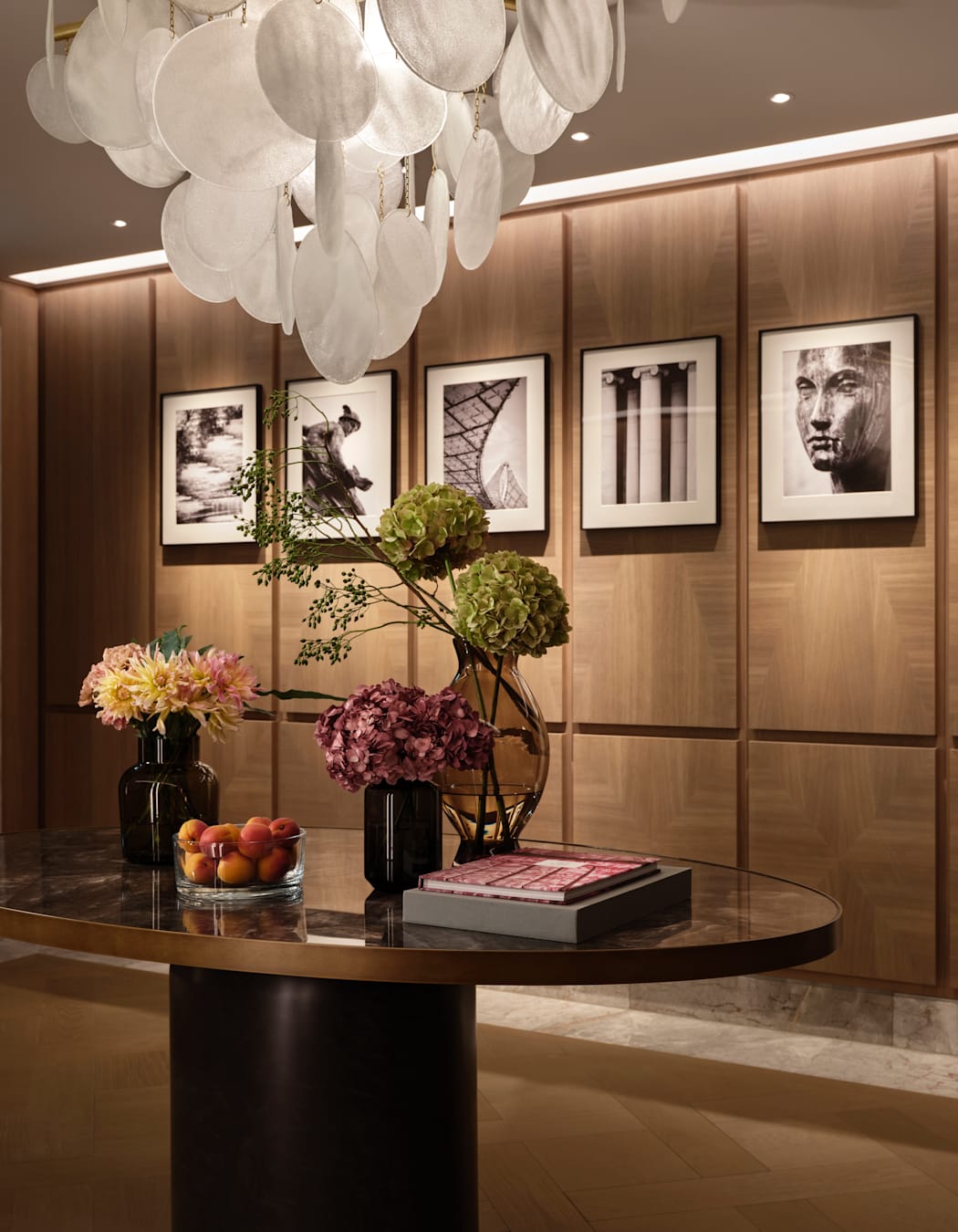
And so, adopting the Rosewood ethos, I tore a page from Lola’s hedonistic playbook. When dining, I followed up butter-soaked spinach dumplings with Black Forest gâteau; I poured bubbles on bubbles in my suite’s bath tub; I propped up the bar and bopped along to live jazz; And I went out to find margaritas, disco balls and more spinning around than Kylie Minogue, until finally, I strolled back under a full moon across blankets of snow that illuminated the city as if it was already dawn.
During these peculiar snowy days, Munich had come to a grinding halt. Schools were closed, shops shut, all trains and flights cancelled. Still, none of that, I learned, can separate a Münchner from a good time. I returned to Bar Montez the following evening to find it chock-full of well-heeled locals – perfectly coiffed and draped in faux furs. Lola’s lust for life, it seemed, had lingered on in this city far after she was banished.
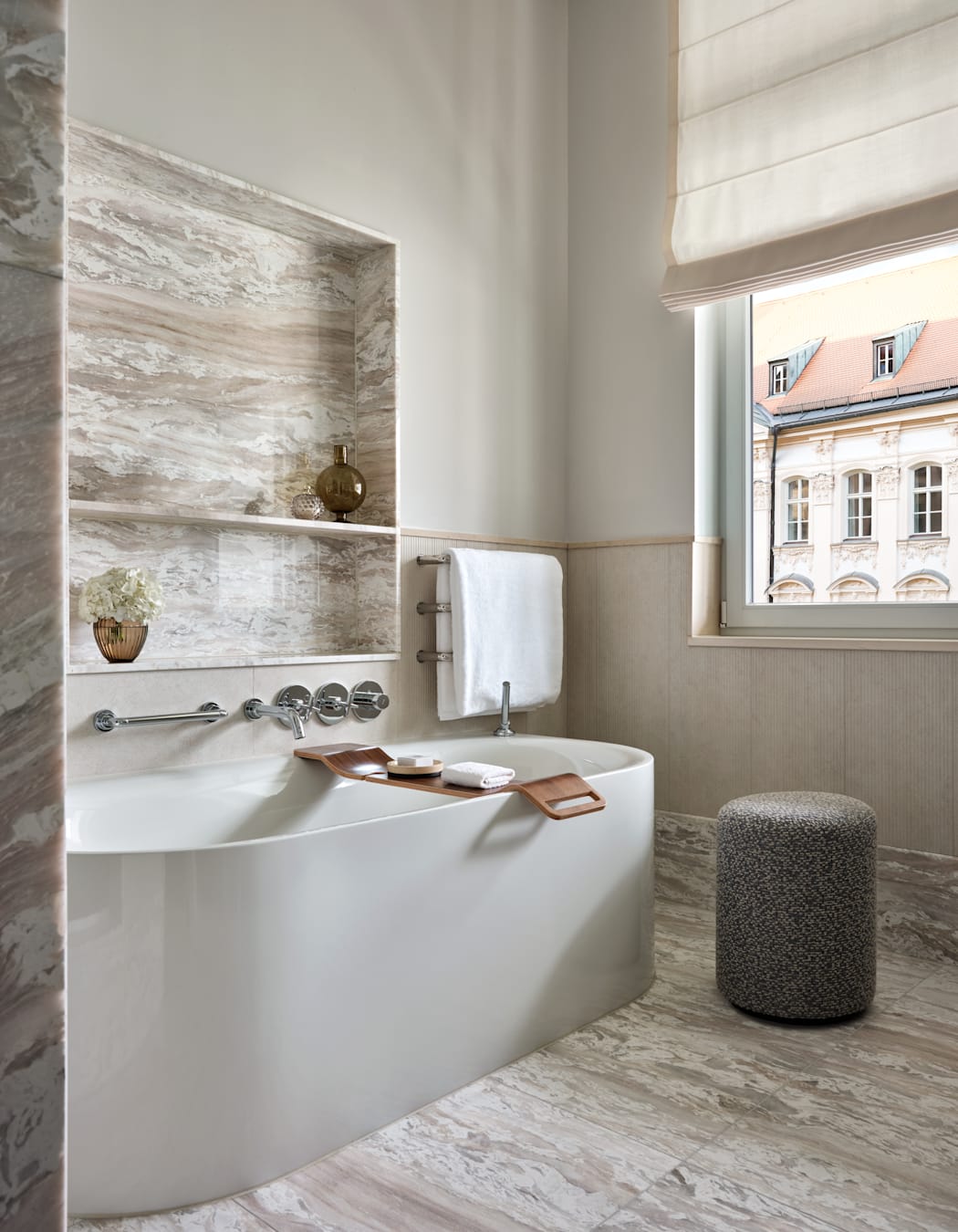
Oh, yeah, about that. Munich turned out to be city number five for Lola, after the liberal reforms she’d convinced old Ludwig to implement caused riots in the streets. But, before moving on, she gained a small, devoted army of left-wing students (die Lolamannen), a castle, two titles – the Countess of Landsfeld and Baroness of Rosenthal – and a very healthy wallet.
My own departure from the city was somewhat less dramatic, but, while I may never own a castle, at least I’m free to return. And when I do, I know exactly where I’ll check in.
Take a deeper dive at Rosewood Munich or see our full collection of hotels in Germany.

